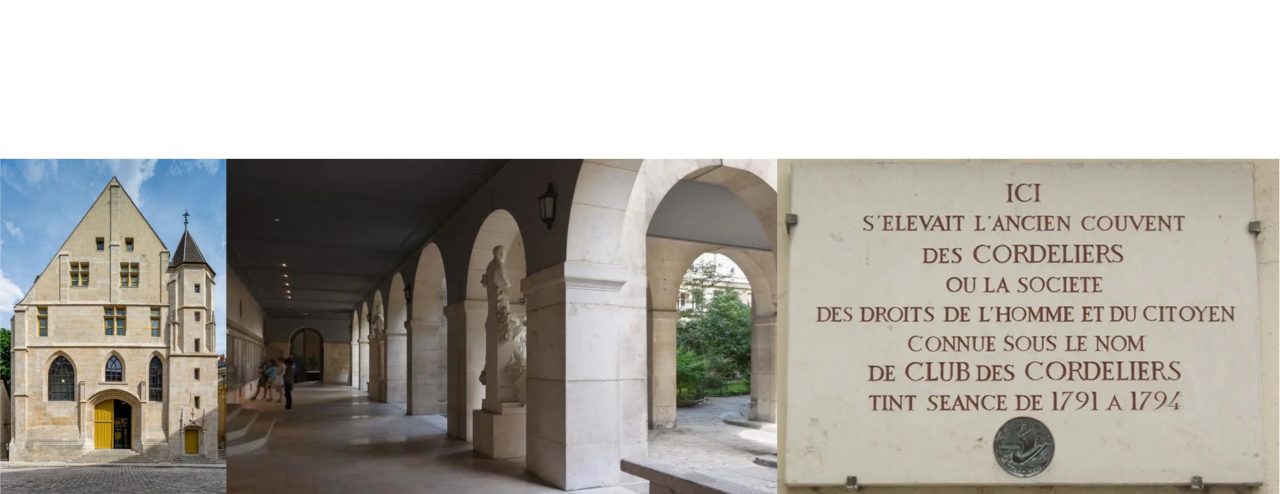
Pr. Robert Farese Jr. (New York, USA)
|
|
Robert V. Farese, Jr., is Member of the Cell Biology Program, at Sloan Kettering Institute at Memorial Sloan Kettering Cancer Center. He is also a Professor at the Gerstner Sloan-Kettering Graduate School of Biomedical Sciences and Weill Cornell Graduate School of Medical Sciences. He has run a laboratory jointly with Dr. Tobias Walther since 2014. Farese earned a BS in chemistry at the University of Florida and an MD at Vanderbilt University School of Medicine. He trained in internal medicine at the University of Colorado School of Medicine and completed a research fellowship in endocrinology and metabolism at the University of California San Francisco and the Gladstone Institutes. Farese was an investigator at Gladstone/UCSF from 1994–2014, where his laboratory focused on lipid and energy metabolism, in particular elucidating the biochemical, cell biological, and physiological pathways of triglyceride synthesis and storage. In 2014 Farese moved to Harvard to form the Farese & Walther laboratory. The laboratory moved to Sloan Kettering in the fall of 2022. The Farese & Walther laboratory studies cellular lipid and energy metabolism, in particular the mechanisms and physiology of energy storage in lipid droplets. More broadly, the lab investigates fundamental mechanisms of cellular lipid metabolism, including how these pathways operate in metabolic diseases and neurodegeneration. At Harvard School of Public Health, Farese served as Chair of the Department of Molecular Metabolism. Farese is a co-founder and board member of the Bluefield Project to Cure Frontotemporal Dementia. His work has been recognized by a Bristol-Myers Squibb “Freedom to Discover Award,” the ASBMB-Avanti Award in Lipids, the Roy Greep Award for outstanding research of the Endocrine Society, the ASBMB-Merck Award for outstanding research, and by election to honorary societies, including the American Society for Clinical Investigation, the Association of American Physicians, and Fellow of the American Society for Cell Biology. See his web site. |
Pr. Nina van Sorge (Amsterdam, The Netherlands)
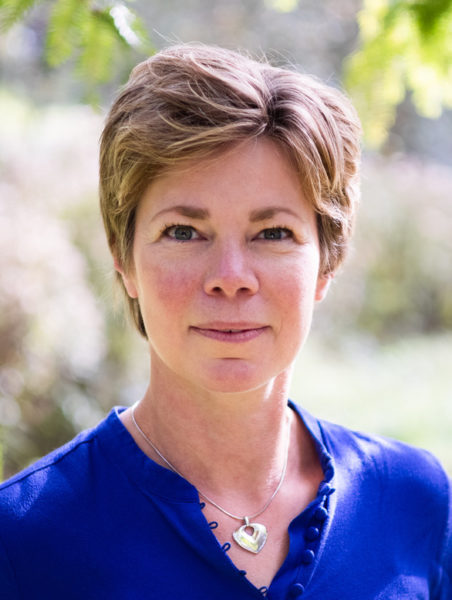 |
Nina van Sorge is Professor of Translational Microbiology at the Department of Medical Microbiology and Infection Prevention at Amsterdam UMC, The Netherlands and Director of the Netherlands Reference Laboratory for Bacterial Meningitis (NRLBM). Following a PhD (2005) on the role of autoantibodies in the post-infectious polyneuropathy Guillain-Barré Syndrome, she moved to the University of California San Diego (La Jolla, CA, USA) to perform post-doctoral work in the field of bacterial pathogenesis. After return to the Netherlands, she started her independent research group in 2014 and moved to Amsterdam UMC in 2020. Fundamental research in her group aims to identify bacterial weaknesses in the context of host immunity to identify new strategies, including vaccines or add-on antibiotics, to prevent and treat bacterial infections. She specifically focusses on the human pathogens Staphylococcus aureus and Streptococcus pyogenes (Strep A) and is co-inventor for a patent on Strep A vaccine development (WO 2013/020090 A3), which is currently in pre-clinical development by the pharmaceutical industry with financial support from Carb-X. In addition to fundamental research, she coordinates and leads the activities in the NRLBM, which performs the national bacteriological surveillance for vaccine-preventable diseases caused by Neisseria meningitidis, Haemophilus influenzae b and Streptococcus pneumoniae as well as non-vaccine preventable invasive diseases caused by E. coli, S. pyogenes and Streptococcus agalactiae (Strep B). The combination of fundamental research with molecular epidemiological surveillance provides a unique position to gain insight into invasive bacterial infections. See website |
Pr. Chetan Chitnis, Head, Malaria Parasite Biology and Vaccines Unit, Institut Pasteur (Paris, France)
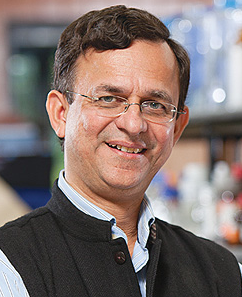 |
Prof. Chetan Chitnis, Head, Malaria Parasite Biology and Vaccines Unit at Institut Pasteur, Paris, received a Ph.D. in Biophysics from the University of California, Berkeley in 1990. He then conducted post-doctoral research on malaria at the National Institutes of Health, Bethesda from 1990 to 1995. He returned to India in 1995 to work at the International Centre for Genetic Engineering and Biotechnology (ICGEB) in New Delhi where he established a group working on basic and translational research on malaria. His research focuses on understanding the molecular mechanisms that enable malaria parasites to invade and multiply within human red blood cells. This information is used to develop vaccines and identify novel drug targets against malaria. Malaria vaccines developed by his group are currently being tested in clinical trials. His group also studies signaling pathways in malaria parasites leading to novel drug targets. In 2014, he joined Institut Pasteur, Paris as Professor in the Department of Parasites and Insect Vectors where he is currently Head of the Malaria Parasite Biology and Vaccines Unit. He is an elected Fellow of the Indian Academy of Sciences, Bangalore (2008) and the Indian National Science Academy, New Delhi (2014). He has been a Wellcome Trust Senior International Research Fellow (2000 – 2005) and Howard Hughes International Research Scholar (2000 – 2005). He was awarded the prestigious Infosys Prize for Life Sciences (2010) and Shanti Swaroop Bhatnagar Prize for Medical Sciences (2004) for his work on malaria. See his web site. |
Fabien Alpy (Illkirch, France)
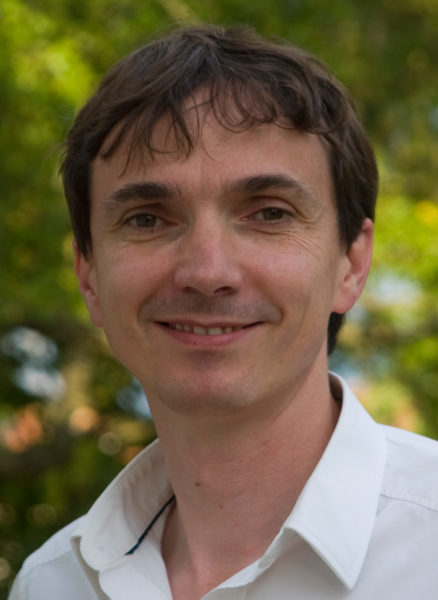 |
Fabien Alpy is an Inserm researcher working at the Institute of Genetics and Molecular and Cellular Biology (IGBMC) in Illkirch. He received his PhD in 2002 from the University of Strasbourg under the supervision of Marie-Christine Rio. He is a cell biologist interested in the architecture of the cell, and more particularly in contacts between organelles. Inter-organelle contacts, which do not lead to membrane fusion, are scaffolded by protein bridges connecting the two membranes. Using a combination of imaging and biochemical approaches, his group is characterizing tether proteins that attach the membrane of organelles and simultaneously shuttle lipids between them. His main focus is on contacts between the endoplasmic reticulum, endosomes and lipid droplets.
See his web site.
|
Dr Jeremy Baskin (New York, USA)
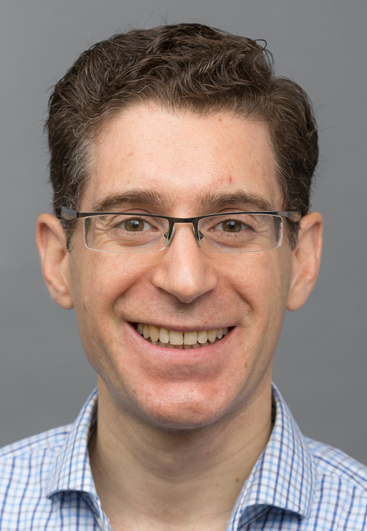 |
Jeremy M. Baskin is Associate Professor and Nancy and Peter Meinig Family Investigator in the Life Sciences at Cornell University, with appointments in the Department of Chemistry and Chemical Biology and the Weill Institute for Cell and Molecular Biology. He was born and raised in Montreal, Canada and received his undergraduate education at the Massachusetts Institute of Technology, with a major in Chemistry and minors in Biology and Music. Jeremy carried out Ph.D. studies supported by NDSEG and NSF graduate fellowships in Carolyn Bertozzi’s group at the University of California, Berkeley, focusing on development of bioorthogonal chemistries. Jeremy received postdoctoral training in cell biology as a Jane Coffin Childs fellow at Yale University with Pietro De Camilli. Research in the Baskin lab at Cornell centers on the chemical biology and cell biology of lipid signaling, with a focus both on development of tools for imaging and editing cellular lipids and elucidation of mechanisms underlying physiological and pathological lipid metabolism and signaling events. Jeremy is Co-Director of the Cornell Chemistry–Biology Interface Program, Topic Editor at ACS Chemical Biology, and recipient of numerous awards, including Beckman Young Investigator, Sloan Research Fellowship, NSF CAREER, ACS Young Academic Investigator, ASBMB Walter A. Shaw Young Investigator in Lipid Research, and ICBS Young Chemical Biologist Award. See his web site. |
Ivo Gomperts Boneca (Pasteur Institute, Paris)
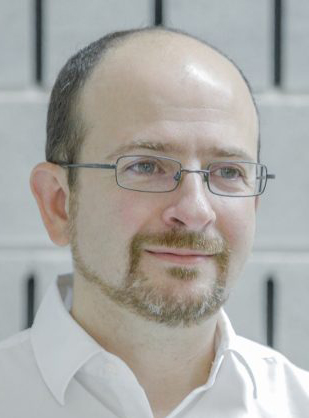 |
Dr. Ivo Boneca, Head of the Unit Biology and Genetics of the bacterial cell wall at the Institut Pasteur and the INSERM Unit U1306 Host-microbe interaction and pathophysiology worked for his Thesis under the supervision of Prof. Alexander Tomasz, at The Rockefeller University, New York, USA, and finished his Ph.D in Biology in 2000. He obtained is PhD from the Institut of Technical Chemistry and Biology (ITQB) from the New University of Lisbon (UNL), Portugal. From 2000 to 2004, he was a post-doctoral fellow at the Institut Pasteur where he did research on Helicobacter pylori and host-microbe interactions. In 2004, he joined the INSERM as an INSERM investigator at the Institut Pasteur and became INSERM Research Director in 2015. He was deputy Director of Department of Microbiology in 2017-2019. His on-going work is aimed at deciphering new knowledge on one of the major “Achilles heals” of bacteria, their cell wall and to improve our future options in dealing with old and “emerging” infectious diseases. Our research can be separated in two complementary subjects: 1) the study of peptidoglycan (PG) metabolism and its role in cell physiology and antibiotic resistance, and 2) the role that cell wall, and in particular, PG metabolism has on host-microbe interactions. For his research, he received the Jacques Monod award (2002), the INSERM Avenir 2007 award, the European Research Council starting grant (2008) and the Pasteur Vallery-Radot award from the French Academy of Science (2011). Since November 2020, he was appointed Editor-in-Chief of the journal Microbial Drug resistance. See his web site |
Nathalie Cartier
| Picture coming soon |
Biosketch coming soon See her web site. |
Maria Fedorova (TU Desden, Germany)
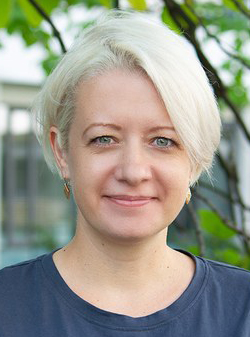 |
Maria Fedorova studied Biochemistry at Saint-Petersburg State University, Russia and obtained her PhD at the Faculty of Chemistry and Mineralogy, Leipzig University, Germany. She worked as a Group Leader at the Institute of Bioanalytical Chemistry at the University of Leipzig. In 2021 Maria group moved to the Center for Membrane Biochemistry and Lipid Research, University Hospital and Faculty of Medicine Carl Gustav Carus of TU Dresden. Maria research is focused on understanding the mechanisms behind plasticity, adaptation and maladaptation of natural lipidomes in response to different stressors (metabolic, redox, etc). Using innovative mass spectrometry and bioinformatics solutions, her group looks at the lipid quality control machinery at subcellular, cellular and organismal levels. Maria also serves as a vice-chair of Pan-European Network in Lipidomics and Epilipidomics (EpiLipidNET; https://www.epilipid.net/ ), a community of researchers interested in lipid biology and lipidomics technologies, supported by European Cooperation in Science and Technology.
See her web site |
Francesca Giordano, Gif-sur-Yvette, France
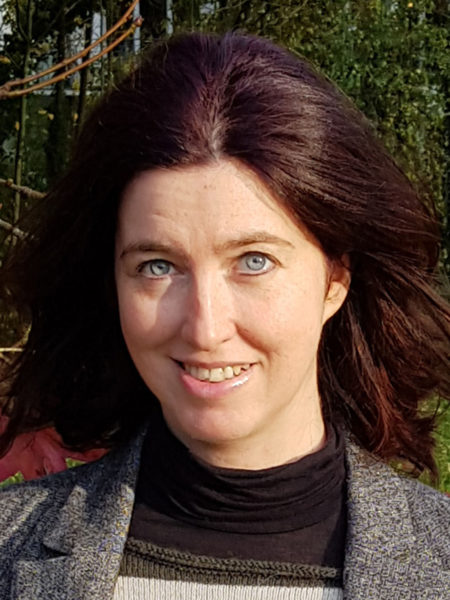 |
Francesca Giordano is an Inserm researcher leading the “Lipid trafficking and membrane contact sites” group at Institut de Biologie Integrative de la Cellule (I2BC, UMR9198) in Gif-sur-Yvette, France. She earned her Ph.D. in 2007 at the University of Naples Federico II and pursued post-doctoral training (2008-2011) in Graça Raposo’s laboratory at Institut Curie in Paris, studying the intracellular sorting and function of an intracellular GPCR, OA1, whose encoding gene is mutated in Ocular Albinism type 1. During her second postdoc (2011-2013) in Pietro de Camilli’s lab at Yale University, in US, she developed interest in lipid trafficking and in the emerging field of membrane contact sites. She identified the Extended-Synaptotagmins as the first conserved components of Endoplasmic Reticulum (ER) – plasma membrane contact sites involved in lipid transport. In 2013 she came back to France with an INSERM researcher position and discovered a novel localization and function of proteins of the Oxysterol-binding related protein (ORPs) family at ER-mitochondria contact sites. In 2017, thanks to an ATIP-Avenir program she established her own group at the I2BC, where she continues her research in the area of membrane contact sites. She is also a laureate of the Foundation Schlumberger for the Education and the Research (FSER) and member of the FSER circle. Recent work by her team has highlighted a novel role of ER-mitochondria contact sites in the biogenesis of lipid droplets. Her laboratory, is also studying how lipid transfer and storage are coordinated in the cell and how these processes are altered in neurodegenerative disorders (such as Alzheimer’s). See her web site.
|
Francisco Sarmento Mesquita (EPFL, Lausanne, Switzerland)
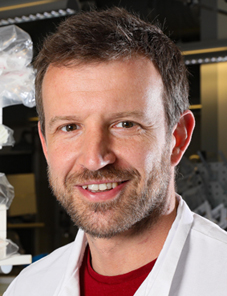 |
Francisco Mesquita prepared his PhD at CMBI, Imperial College London, with Prof. David Holden, and then had a post-doctoral popsition at i3S, University of Porto, Portugal, with Didier Cabanes. His work focused on studying host-pathogen interactions that coordinate fundamental cellular innate defences, such bacterial selective autophagy, and host plasma membrane repair mechanisms. In 2019, he joined the group of Professor Gisou van der Goot (EPFL, Lausanne Switzerland) as a senior scientist to continue studying membrane biology at the host-pathogen interface. For the past four years, by combining mutual interests in host-pathogen, membrane trafficking and protein lipidation, he contributed to setting up the research on SARS-CoV-2 at EPFL, where his work has laid the foundation for a re-emergent interest in understanding lipid post-translational modifications (e.g., S-acylation) as central aspects of the cell biology of Coronaviruses (CoVs), and enveloped viruses in general. See his web site. |
Joel Haas (INSERM and Pasteur Institute, Lille, France)
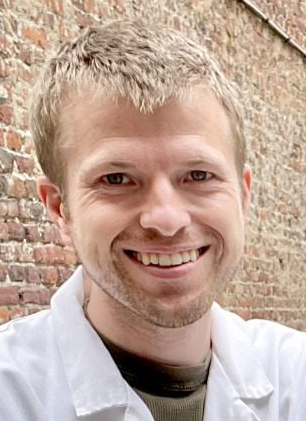 |
Joel Haas is a physiologist with extensive experience studying glucose and lipid metabolism in the context of cardiometabolic disease. Prior to his PhD, he worked as a research associate at the Joslin Diabetes Center at Harvard Medical School studying the contribution of defective hepatic insulin signaling to complications of type-2 diabetes. He then obtained a PhD in biochemistry and molecular biology at the University of California-San Francisco, studying the physiological roles of triglyceride synthesizing enzymes (DGAT1 and DGAT2). In 2013, he joined the INSERM department UMR1011 in Lille, (Nuclear Receptors, Metabolic and Cardiovascular Diseases) and in 2019 he was recruited as a full-time tenured researcher in the same department. He currently co-directs a group entitled “Liver and Adipose Tissue Physiomics” (LivAdip) with Dr. Delphine Eberlé. One main research axe focuses on how metabolic factors impact the function of the innate immune system in pathogenesis of non-alcoholic fatty liver disease (NAFLD). See his lab web page. |
Andrey Klymchenko (CNRS and University of Strasbourg, France)
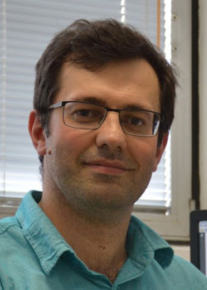 |
Andrey Klymchenko obtained his PhD degree in 2003 from Kyiv National University. Then, he worked as post-doctoral fellow in the University of Strasbourg and Catholic University of Leuven. Then, he joined CNRS in 2006, received CNRS Bronze Medal in 2010 and was promoted to Director of Research in 2014. In 2015, he obtained ERC consolidator grant BrightSens to work on fluorescent nanoparticles for ultrasensitive detection of cancer markers. In 2021, he received Prix du Dr et de Mme Henri LABBE from French Academy of Sciences and he was elected a member of Academia Europaea. He is a leader of “Nanochemistry and Bioimaging” group. His research interests include functional fluorescent molecules and nanomaterials for biosensing, imaging and in vitro diagnostics. He is a co-founder of a start-up BrightSens Diagnostics focused on molecular in vitro diagnostics based on fluorescent nanoparticles. He is a co-author of over 250 peer-reviewed articles and 12 patents. See his web site. |
James Olzmann (University of California, Berkeley, USA)
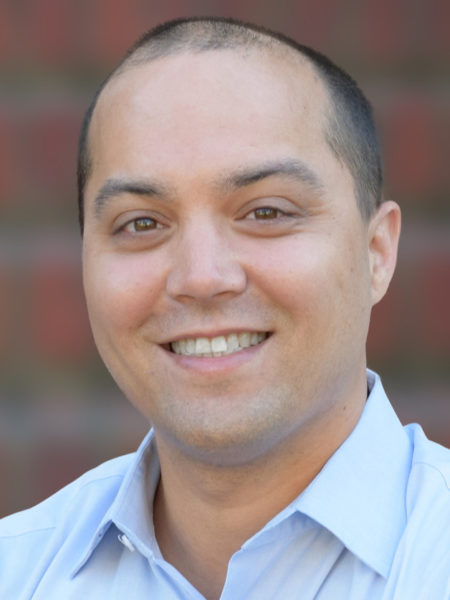 |
James Olzmann is an Associate Professor in the Departments of Molecular & Cell Biology and Nutritional Sciences & Toxicology at the University of California, Berkeley and an Investigator at the Chan Zuckerberg Biohub in San Francisco. He completed his undergraduate studies at the University of Michigan and then earned his Ph.D. in Neuroscience in from Emory University, where he was mentored by Dr. Lian Li. Following that, he conducted postdoctoral research at Stanford University in the Department of Biology, under the supervision of Dr. Ron Kopito. During his postdoctoral fellowship, he studied protein networks that mediate protein degradation in the endoplasmic reticulum and uncovered an unexpected connection with lipid droplets. In 2013, James established his independent research group at the University of California, Berkeley. His lab employs a combination of systems biology, chemical biology, and cell biology strategies to investigate the principles that regulate organelle biology and cellular lipid homeostasis. The team’s primary objective is to understand the molecular mechanisms that govern oxidative lipid damage during ferroptosis and regulate neutral lipid storage in lipid droplets. They further aim to develop small molecule tools and therapeutics to target these pathways in disease. James’s contributions to the field have been recognized with several awards and honors, including the Presidential Early Career Award for Scientists and Engineers, the American Society for Cell Biology Günter Blobel Early Career Award, Miller Institute Professorship Award, and a Bakar Fellows Spark award. See his web site. |
Dr Marc Poirot (INSERM, Toulouse, France)
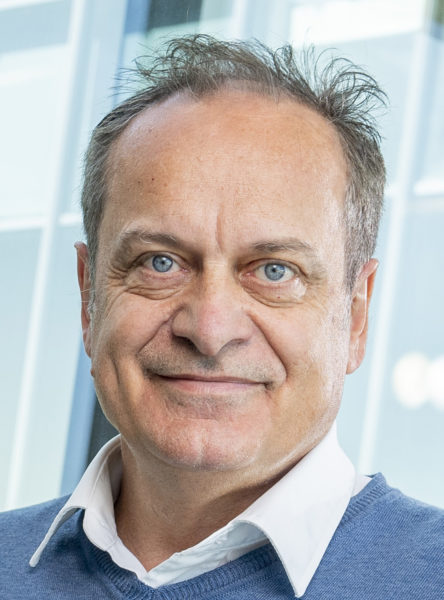 |
Marc Poirot studied organic chemistry and biochemistry at the university Paul Sabatier of Toulouse where he received his PhD degree on chemical biology. He did a post-doc at Sanofi-Elf-bio-recherche and get tenured at Inserm (French NIH) as a research scientist. Marc was next visiting scientist at the National Institute of Health (NIH, Bethesda, MD, USA) to work on steroid hormone receptors. Marc is presently leader of the team INOV with his long-time collaborator Sandrine Silvente-Poirot at the Cancer Research Center of Toulouse, France. His research interests include studies on cholesterol metabolism deregulations in cancers. With Sandrine and their team, they identified new bioactive cholesterol metabolites highlighting the existence of a new branch on the cholesterol metabolic pathway. This branch is centered on 5,6-epoxycholesterols (5,6-EC) which they showed to be differentially metabolized in cancer cells compared to normal cells. They found that in tumors 5,6-EC are transformed into oncosterone an oncometabolite with tumor promoter properties. Alternatively, in normal tissue, they showed that 5,6α-EC is enzymatically conjugated to histamine to give dendrogenin A, which displays tumor suppressor properties. Dendrogenin A was actually the first steroidal alkaloid identified in mammals. Marc’s group is identifying new mammalian sterol metabolites, their biosynthesis enzymes, characterized their biological properties and their mechanism of action. Marc published more than 130 scientific articles/reviews/patents and is the 2023 recipient of the Schroepfer medal awarded by the American Oil Chemists’ Society (AOCS) for outsdanding achievement in the steroid field.
See his web site. |
Bruce Shilllito (Sorbonne University, Paris)
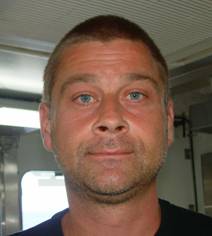 |
Bruce Shillito is a teaching assistant at the Sorbonne University in Paris, he leads the AMEX group (Adaptations aux Milieux EXtrêmes) of the BOREA Laboratory (Biologie des ORganismes et Ecosystèmes Aquatiques). He earned a PhD in Molecular Biophysics, which focused on the biosynthesis of chitin in the extra-cellular matrix of the giant deep-sea tubeworm Riftia pachyptila. His research is about biological responses of deep-sea fauna facing variations of environmental parameters such as hydrostatic pressure or temperature. He studied behavioural and molecular responses to thermal stress in the case of hydrothermal vent animals, which thrive very close to superheated toxic vent fluids in their natural habitat. More recently he explored the acclimation processes involved in bathymetric (depth) migrations of crustacean decapods (vent shrimps), and the resilience of deep scleractinians (cold water corals) in the face of ongoing climate change. Because such investigations require experiments on live samples, and because decompression trauma during sampling severely impacts the physiology of deep-sea organisms, he devotes a significant part of his activity to the design of pressurised instruments (laboratory aquaria, pressure-retaining sampling devices). His studies led him to participate to several high-sea oceanographic cruises in the Pacific and Atlantic Oceans, as well as the Mediterranean Sea, involving field work with either Remotely Operated Vehicles (R.OV. Victor 6000) or deep-sea manned submersibles (Nautile or Alvin). See his web site. |
Marie-Caroline Michalski (INRAE Lyon, France)
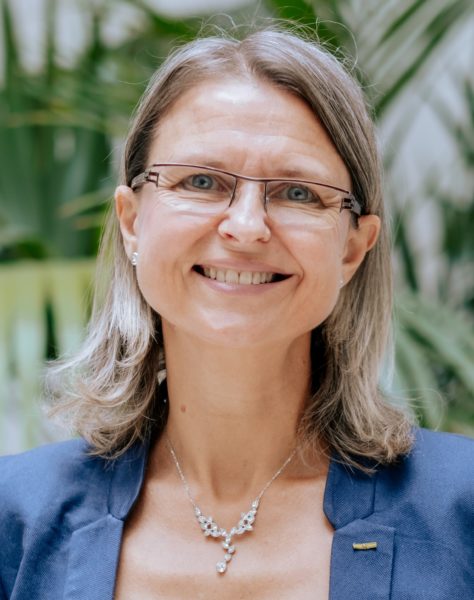 |
Marie-Caroline Michalski, Research Director at INRAE, is interested in the impact of dietary fat structure and supramolecular organization of lipids in foods on their health and metabolic effects. After completing food engineering studies and obtaining a PhD in food science (ENSAIA, Nancy), she has developed research on the structure and functional properties of milk fat and milk fat globules in dairy products at INRAE (UMR STLO, Rennes). Since 2004, she evolved toward nutrition and health in CarMeN laboratory in Lyon by developing a new research topic about the impact of lipid structures on their intestinal absorption and metabolic impacts, in collaboration with the Human Nutrition Research Center Rhône-Alpes. She revealed in humans that the metabolic fate of dietary fatty acids is different according to the structure of fat ingestion, spread or emulsified, leading to the new concept of “slow vs fast fat” in the nutritional management of obesity-related metabolic risk. She and her group also shed light on metabolic impacts of milk polar lipids, notably by a randomized clinical trial demonstrating that the supplementation of postmenopausal women with milk polar lipids decreased lipid markers of cardiovascular risk. She is head of the DO-IT team of CarMeN laboratory, laureate of the “Equipe FRM” label by the French Foundation for Medical Research (2021-2024), and PI in several national agencies- and industry-funded projects. MC Michalski has been awarded in 2006 the European Young Lipid Scientist Award by EuroFedLipid, in 2015 as Knight of the Agricultural Merit distinction, and in 2022 the Chevreul Medal, delivered by the French Society for the Study of Lipids to an outstanding researcher in the field of lipid science and industrial applications. Major recent articles were published in journals such as JCI Insight, Gut, Am J Clin Nutr, Mol Nutr Food Res, J Clin Endocr Metab, Prog Lipid Res (h-index=43, ~4300 citations excl. autocitations). See her web site. |
Christophe Magnan (Université Paris Cité, France)
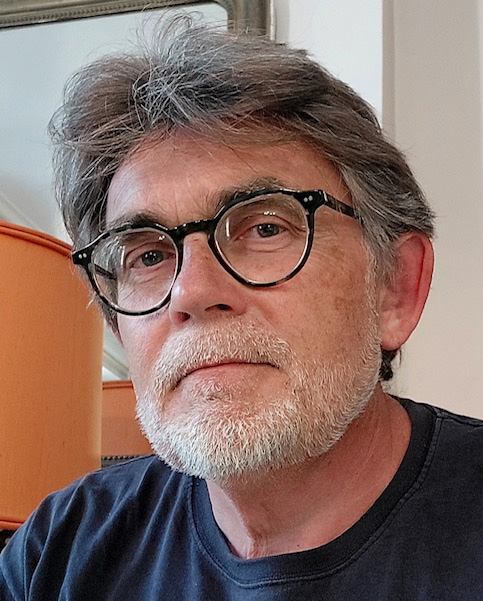 |
Christophe Magnan is a university professor. He teaches animal physiology at the Université Paris Cité and heads a research team at the CNRS unit « Functional and Adaptive Biology » (BFA). He obtained a PhD in endocrinology in 1995. He was a visiting professor at the Department Of Pharmacology, Physiology & Neuroscience at Rutgers University, Newark, NJ in 2003 (invited by Professors Vanessa H Routh and Barry E Levin) and at the Montreal Diabetes Research Center in 2007 (invited by Prof. Marc Prentki).His research focuses on the role of brain lipid sensing in the nervous control of food intake and glucose homeostasis in relation to the onset of metabolic diseases such as obesity and type 2 diabetes mellitus (T2DM). In particular, his team has shown that circulating levels of fatty acids are detected by specialized neurons in the hypothalamus and are able in turn to control food intake, insulin secretion and action. Furthermore, saturated fatty acids (such as palmitate) can induce hypothalamic insulin resistance via local production of ceramides, which can have a deleterious effect on insulin secretion and participate to the onset of T2DM in preclinical model. Another part of his team’s work focuses on the identification of circulating lipids as biomarkers of susceptibility to T2DM. Over the past decade, Christophe Magnan has been coordinator of three research program of the National Research Agency and member of the steering committee of two European research consortia (within the framework of the EU’s « IMI: Innovative Medicines Initiative » programs). He is also a member of the board of the Société Francophone du Diabète and of the scientific council of the Société Française de Nutrition. See his web site. |